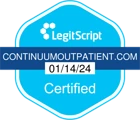How Can Mental Health Treatment Centers Help You Achieve Balance in Your Life?
What is Mental Health?
Mental health is more than the absence of mental disorders or disabilities. It is a state of well-being in which people are able to cope with the daily stresses of life, work productively, and contribute to the community.
- Emotional well-being: This involves the ability to manage and express emotions effectively. It’s about feeling positive and enthusiastic about life, maintaining a sense of contentment, and being able to bounce back from adversity.
- Psychological well-being: This aspect includes the development of personal abilities, the achievement of goals, and the realization of potential.
- Social well-being: It relates to the ability to forge and maintain relationships, connect with others, and contribute to the community.

Common Mental Health Disorders
- Anxiety disorders: Characterized by excessive fear or anxiety. Symptoms might include panic attacks, obsessive thoughts, unrelenting worries, or compulsive behaviors.
- Mood disorders: Involve persistent feelings of sadness or periods of feeling overly happy, or fluctuations from extreme happiness to extreme sadness.
- Personality disorders: Often characterized by significant impairments in self-identity, relationships with others, and functioning.
- Psychotic disorders: These disorders involve distorted thinking and awareness. Schizophrenia is the most common example. Typical symptoms are hallucinations and delusions.
- Substance use disorders: Involve the recurrent use of alcohol, drugs, or other substances. The key signs of substance abuse include craving, loss of control, and inability to stop using despite negative consequences.
When to Consider Mental Health Treatment Centers
Difficulty Coping with Everyday Tasks
- Drain your energy
- Reduce your focus
- Make even small tasks seem insurmountable
Changes in Mood or Behavior
- Withdrawing from social activities
- Avoiding friends and family
- Experiencing a significant change in sleep patterns (insomnia or oversleeping)
Difficulty Managing Emotions
Unhealthy Coping Mechanisms
Difficulties in Personal Relationships
Changes in Physical Health
- Headaches
- Unexplained weight loss or gain
- Digestive issues
- Changes in appetite
Suicidal Thoughts
Finding the Right Mental Health Treatment Centers: Treatment Programs at Continuum Outpatient Center
Partial Hospitalization Programs (PHP)
A PHP is designed for you to receive intensive treatment while still being able to return home at the end of the day. Our PHP runs five days a week, for up to six hours a day.
- You’ve completed inpatient programs and need ongoing support before transitioning back to your daily routine.
- Your symptoms are severe enough to impact your daily activities, but you can still function independently.
- You need an intensive treatment program that provides structure and support, but not 24/7 supervision.
Intensive Outpatient Programs (IOP)
Our IOP offers a step down from our PHP. It’s a less intensive option for those who need ongoing support but can manage their daily routine independently. Our IOP often runs three days a week, with three-hour sessions.
- Your symptoms are manageable, and you need support to maintain progress.
- You need a flexible program that allows you to attend school or work while receiving treatment.
Aftercare Programs
- Group therapy sessions and support groups to maintain progress and connect with others in recovery.
- Individual therapy sessions with licensed therapists to address specific issues or concerns.
- Psychiatric services to manage medication and any ongoing mental health needs.
- Relapse prevention strategies and tools to help you stay on track after treatment.
- Alumni support groups to help individuals maintain connections made throughout treatment and continue on the path to recovery.
Therapeutic Approaches in Mental Health Treatment Centers Like Continuum Outpatient Center
Cognitive Behavioral Therapy (CBT)
Dialectical Behavior Therapy (DBT)
Group Therapy
In group therapy, each session often involves a small number of participants, usually between 5 to 15 people. The sessions are led by one or more therapists who have expertise in guiding group dynamics and fostering a safe, confidential space for discussion.
The group meets regularly, often weekly, and sessions last about an hour or two. During these meetings, you’re encouraged to share their experiences, feelings, and challenges.
As members talk about their struggles, you not only receive direct support and insight from the therapist but also gain perspectives from fellow group members. This collective dynamic is a powerful aspect of group therapy – it helps individuals realize they are not alone in their struggles.
Medication-Assisted Treatment (MAT)
MAT is a method of treating substance use disorders, particularly those related to opioids like heroin or prescription pain relievers. It combines medications with counseling and behavioral therapies.4
MAT helps reduce withdrawal symptoms, which can be intense and uncomfortable. The medications used in MAT act on the same brain receptors as the addictive drug, but in a safer and controlled manner. This helps control cravings and ease withdrawal symptoms.
By alleviating withdrawal symptoms and cravings, MAT makes it easier for you to focus on counseling and therapy to address the root causes of your addiction.
Life Skills Training
- Mental growth: This involves developing skills like problem-solving, decision-making, and critical thinking. It helps you better manage daily challenges and reduces the risk of relapse.
- Emotional growth: This includes learning to identify, understand, and express emotions healthily. It’s crucial for building resilience and maintaining stable relationships.
- Physical growth: This aspect covers basic self-care skills, such as maintaining personal hygiene, nutrition, and physical fitness. It helps you develop a healthy routine and boosts self-esteem.
- Spiritual growth: While not religious in nature, spiritual growth focuses on finding meaning and purpose in life, connecting with something greater than yourself, and developing a sense of gratitude and inner peace.
10 Ways to Get the Most Out of Mental Health Treatment Centers
1. Set Personal Goals
2. Actively Participate in Therapy
3. Establish a Support Network
4. Practice Self-Care
- Adequate sleep
- Balanced nutrition
- Physical activity
- Mindfulness practices
5. Keep a Journal
6. Stay Open to Different Therapies
7. Communicate with Staff
8. Attend All Scheduled Activities
9. Plan for Post-Treatment
Work with your treatment team to develop a post-treatment plan. This plan should include strategies to:
- Maintain progress
- Manage potential triggers
- Continue support after leaving the center
10. Reflect on Your Progress
How Continuum Outpatient Center Can Help You Achieve Sustainable Wellness

Managing Symptoms and Challenges
Through individualized treatment plans, we can help you manage symptoms of mental health disorders such as depression, anxiety, PTSD, and more. We also address any co-occurring disorders that may be contributing to your symptoms.
Developing Coping Strategies
Along with medication and therapy, we emphasize developing effective coping strategies to manage stress, regulate emotions, and maintain healthy relationships. Our goal is to equip you with the tools necessary for long-term recovery.
Enhancing Quality of Life
- Building social skills
- Fostering independence and self-esteem
- Promoting a sense of purpose and fulfillment in daily life
Join Us on the Path to Recovery
Reach out to us today, and let us help you take the first step toward healing and a brighter future.


